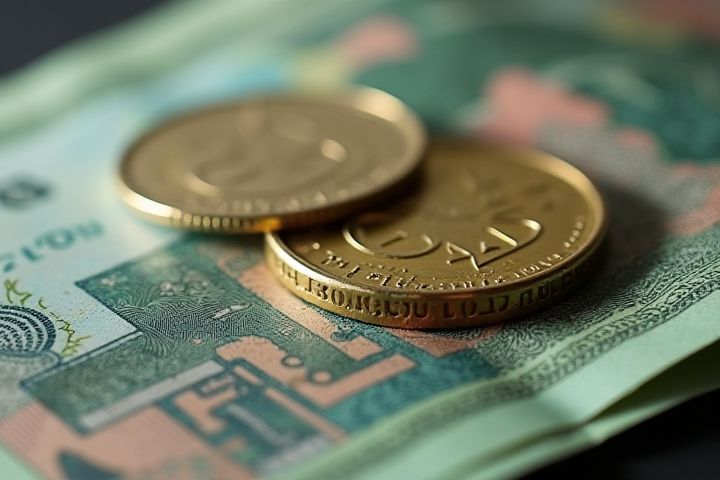
Nigeria's economic policies focus on diversifying the economy away from oil dependency, fostering sustainable growth in agriculture, manufacturing, and services. The government implements the Economic Recovery and Growth Plan (ERGP), which aims to stimulate job creation, enhance infrastructure development, and increase foreign direct investment (FDI). Furthermore, fiscal and monetary policies are designed to stabilize the currency, manage inflation, and improve the overall business environment. Small and medium-sized enterprises (SMEs) receive particular attention, as they are essential for driving economic resilience and innovation. By prioritizing these sectors, Nigeria aims to achieve inclusive growth and enhance the standard of living for its citizens.
Structural Adjustment Program
Nigeria's economic policies have been significantly influenced by the Structural Adjustment Program (SAP), initiated in the 1980s to address economic instability and promote growth. The SAP aimed to reduce government intervention in the economy, enhance export promotion, and liberalize trade, ultimately seeking to boost foreign investment. Key elements included devaluation of the Naira to make exports more competitive and the privatization of state-owned enterprises. You can observe the long-term effects of these measures on Nigeria's economic landscape, including shifts in industry and trade patterns, as well as challenges in social equity and poverty alleviation.
National Economic Empowerment and Development Strategy
Nigeria's economic policies emphasize the National Economic Empowerment and Development Strategy (NEEDS), aimed at fostering sustainable growth and reducing poverty. Implemented to enhance economic stability, NEEDS promotes investment in infrastructure, education, and healthcare to empower citizens and create job opportunities. This comprehensive framework prioritizes the development of small and medium-sized enterprises (SMEs) as a crucial driver for innovation and economic diversification. By focusing on these key areas, Nigeria seeks to transform its economy into a more resilient and competitive entity on the global stage.
Vision 20:2020
Nigeria's Vision 20:2020 aims to position the country among the world's top 20 economies by the year 2020, emphasizing sustainable development and economic growth. Key economic policies revolve around diversifying the economy beyond oil dependence, promoting sectors such as agriculture, manufacturing, and services. The government has implemented measures to attract foreign investment and enhance infrastructure development, fostering a more favorable business environment. Engaging in initiatives that improve education and technology is crucial for building human capital, enhancing productivity, and ensuring long-term economic stability in Nigeria.
Economic Recovery and Growth Plan
Nigeria's Economic Recovery and Growth Plan (ERGP) prioritizes strategies to rejuvenate the national economy by enhancing productivity and investing in infrastructure. This initiative aims to diversify the economy, reducing dependency on oil while promoting sectors such as agriculture and manufacturing. Key components of the ERGP include fostering an enabling business environment, implementing fiscal reforms, and attracting foreign direct investment. You can observe the positive impact of these policies in improved GDP growth rates and increased employment opportunities across various sectors.
Nigerian Industrial Revolution Plan
Nigeria's Economic Policies are strategically aligned with the Nigerian Industrial Revolution Plan (NIRP), which aims to diversify the economy through manufacturing and innovation. The NIRP emphasizes key sectors such as agriculture, minerals, and textiles, creating a more resilient economic base that reduces dependency on oil exports. By focusing on local production and skills development, these policies seek to enhance job creation and elevate the overall standard of living for citizens. Your understanding of these initiatives can provide insight into the future trajectory of Nigeria's economy and its potential for growth and stability.
National Development Plan
Nigeria's economic policies are centered around the National Development Plan, a strategic framework aimed at fostering sustainable growth and reducing poverty. This plan prioritizes infrastructure investment, diversification of the economy beyond oil, and enhancement of human capital through education and health initiatives. Focused on creating a conducive environment for foreign direct investment, the policies seek to improve agricultural productivity and boost manufacturing capabilities. By implementing these strategies, Nigeria aims to achieve its long-term goals of economic stability and inclusive development, ultimately enhancing the quality of life for its citizens.
Agricultural Promotion Policy
Nigeria's Agricultural Promotion Policy aims to enhance food security and increase agricultural productivity through various strategic initiatives. This policy emphasizes investment in infrastructure, research, and technology to support farmers and boost crop yields across the nation. By promoting sustainable practices and diversifying agricultural production, the policy seeks to reduce reliance on imports, fostering economic growth. You can explore how these initiatives are transforming rural communities and improving livelihoods nationwide.
Medium-Term Expenditure Framework
Nigeria's economic policies are primarily guided by the Medium-Term Expenditure Framework (MTEF), which aims to ensure fiscal discipline and enhance budgetary planning. The MTEF outlines government priorities, allocates resources efficiently, and supports sustainable economic growth through strategic investments in key sectors such as infrastructure and healthcare. This framework also emphasizes transparency and accountability in public finance management, allowing stakeholders to track government spending and assess its impact on development. By aligning fiscal strategies with national development goals, Nigeria seeks to create a stable economic environment conducive to attracting foreign investment and boosting domestic productivity.
National Social Investment Programs
Nigeria's economic policies emphasize the National Social Investment Programs (NSIP), which are designed to alleviate poverty and promote inclusive growth. These programs encompass initiatives such as the Conditional Cash Transfer scheme, which targets vulnerable households to enhance their financial stability. By focusing on youth empowerment through initiatives like the N-Power program, Nigeria aims to boost employment opportunities and skill development. Your involvement in these programs can contribute to a more sustainable economy while addressing critical social issues.
Federal Inland Revenue Service Reforms
Nigeria's economic policies are increasingly prioritizing reforms within the Federal Inland Revenue Service (FIRS) to enhance tax collection efficiency and broaden the tax base. These reforms aim to improve revenue generation, boost governmental capacity for infrastructure development, and address economic challenges stemming from fluctuating oil prices. By implementing digital solutions and streamlining tax processes, the FIRS seeks to foster compliance and minimize tax evasion among individuals and corporations. You can expect these measures to significantly impact the overall economic stability and growth in Nigeria, ultimately paving the way for a more diversified economy.
